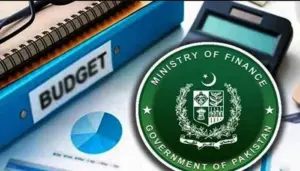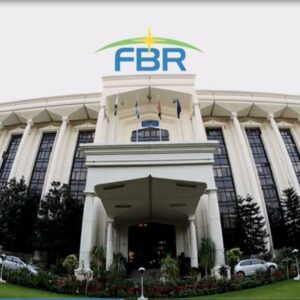Transparency International says police, judiciary are most corrupt institutions

Transparency International says police, judiciary are most corrupt institutions
- Dissatisfaction with the govt’s self-accountability
- Corruption Ratio
- Weak accountability main cause of corruption
- Local Governments
- Bribes taken forcibly
- Unemployment
- Accountability campaign is biased?
ISLAMABAD Dec 07,2021- Transparency International Pakistan survey has revealed that the police and judiciary are the most corrupt institutions in the country.
The National Corruption Perception Survey (NCPS) 2021 conducted by Transparency International Pakistan to assess the scale of corruption in the country has revealed that the police and judiciary are the most corrupt institutions in the country.
The results of a survey released at 1pm on Wednesday night show that a large majority of the people are dissatisfied with the government’s self-accountability, while the survey found that the main cause of corruption in the country is weak accountability (51.9%). , Lust for powerful people (29.3%) and low wages (18.8%) are reported.
Transparency International suggests to complete K4 water project thru FWO
According to the survey, the police is the most corrupt institution in the country, followed by the judiciary. According to the NCPS, the tender and contracting sector is the third most corrupt sector, followed by health, land administration, local government, education, taxation and NGOs, says Transparency International report.
According to a press release from Transparency International Pakistan, the same survey on corruption has been conducted five times in the last 20 years (2002, 2006, 2009, 2010 and 2011). The recent survey was conducted in all four provinces of the country from 14 October 2021 to 27 October 2021 in which the general public has given their views on the most important issues related to governance.
Main Points
According to Transparency, the main points of the survey are:
1) The police is first in corruption, the judiciary is second, the department of issuing contracts and tenders is third, and health is fourth. According to the 2020 report of the National Judicial (Policy Making) Committee on Judicial Statistics, 46,698 cases are pending in the Supreme Court while 1,772,990 cases are pending in the District Courts Transparency International further elaborates.
Dissatisfaction with the govt’s self-accountability
2) The majority of the people (85.9%) have expressed dissatisfaction with the government’s self-accountability.
Corruption Ratio
3) The majority of Pakistani people still think that corruption in the public sector is very high.
Corruption is 41.4% in the police and 17.4% in the judiciary, 10.3% in contracts and tenders and according to the people these three institutions are the most corrupt.
Corruption occurs 59.8% in road construction contracts, 13.8% in sanitation and garbage collection contracts, 13.3% in water supply and 13.1% in drainage systems and in the most important sectors of public service. People have to pay bribes to get facilities, the international watch body Transparency International says .
Weak accountability main cause of corruption
4) According to NCPS 2021, the main causes of corruption are weak accountability (51.9%), lust for powerful people (29.3%) and low salaries (18.8%).
What Measure?
5) Among the measures taken to reduce corruption, 40.1% of the people have said that severe punishments should be given, 34.6% have said that government employees should be held accountable by improving the handling of corruption cases by NAB. 25.3% said that those convicted of corruption should be permanently disqualified from public office.
Local Governments
6) The survey also sheds light on the local governments, how with the presence of these governments, Pakistan could have handled the situation arising out of Corona in the best possible way.
7) 47.8% of Pakistanis believe that if elected representatives of local governments had been in their positions, the awareness campaign regarding Corona could have been launched effectively.
Why corruption at Grassroots level
8) A majority of 72.8% of Pakistanis are of the opinion that the reason for the increase in corruption in the public sector at the grassroots level is the absence of local government.
Corona Relief Efforts
9) 89.1% of Pakistanis are of the opinion that they did not pay any bribe during the relief efforts of the government regarding Corona.
Bribes taken forcibly
10) 81.4% of Pakistanis are of the opinion that they do not pay bribes voluntarily and this is a clear reflection of the fact that bribes are taken forcibly by not working in the provision of public services.
Inflation comparison in different regimes
11) Compared to the three federal governments, the majority of Pakistanis (92.9%) think that inflation is at its highest level in the PTI era (2018-2021) and in the PMLN League era (2013-2018). It was 4.6% while in the PPP era (2008-2013) it was only 2.5%.
Income has shrunk
12) A large number of Pakistanis, 85.9%, are of the opinion that their income has shrunk in the last three years.
Unemployment
13) Rising inflation and unemployment are cited as reasons: government incompetence (50.6%), corruption (23.3%), undue interference of politicians in government affairs (9.6%) and failure to implement policies. (16.6%).
Accountability campaign is biased?
14) The majority of Pakistanis (66.8%) believe that the current government’s accountability campaign is biased.





